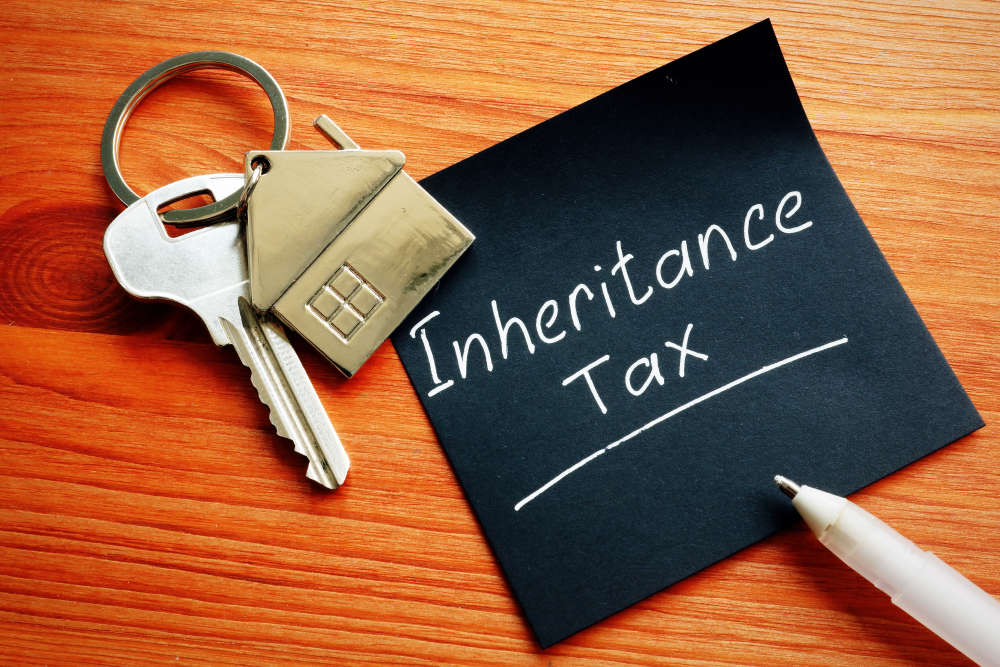
Making a will is one of the most important things you can do, regardless of your age or financial situation. Unfortunately, many of us put it off, whether it’s because of the morbid topic of our own mortality or because we just don’t know where to start.
“Recent research has shown that as many as three in five UK adults – that is 31 million people – have not made a will, and two-thirds of those are aged 65 or over,” says one local expert in the field.
However, an up-to-date will is really important. It gives you peace of mind that after you're gone, your final wishes will be respected and your loved ones will be provided for. Think of your will as a gift to your nearest and dearest, rather than something ominous, and take action.
Neither do you need to be wealthy to justify making a will. In fact, for most ordinary families, a will is essential to ensure your dependents are taken care of, your children's and grandchildren's futures are secure, and your remaining assets are distributed as you wish. Whether you want to pass on a little or a lot, a will allows you to specify your final arrangements clearly according to your priorities.

Decide on your executors
Your executors are the people you appoint to carry out the instructions in your will after you die. They will manage your estate, pay any debts, and distribute your assets to your beneficiaries according to your wishes. It is best to choose between one to three executors. You want executors who are responsible, financially trustworthy, willing and able to serve, and likely to outlive you.
Executors have a heavy responsibility, so providing clear instructions in your will and talking to your executors about your wishes in advance can help set them up for success. Your executors should have copies of your will and other essential documents they will need to gain access to your assets like bank statements, details of mortgages and insurance policies, share certificates, and business interests.

Choose your beneficiaries
You can leave gifts of money, property, or possessions to anyone you like in your will – family, friends, charities, etc. Typically, your first priorities should be providing for your spouse/civil partner, children, and any other dependents. You may also want to leave gifts to grandchildren to help with education costs or getting on the property ladder.
You can specify exactly who gets what, but if there are items of high sentimental value consider talking to the relevant people during your lifetime about what they might appreciate receiving. Be very clear in identifying beneficiaries to avoid confusion or disputes. While you have no legal obligation to leave anything to non-dependent family members, even a small gesture can show you still care.

Plan your funeral wishes
None of us like to dwell on the practicalities of our own funeral. But specifying your wishes in advance, such as whether you want to be buried or cremated, any preferred funeral home, service details, music etc., relieves your loved ones of navigating these difficult decisions during a time of grieving. Your executors are also responsible for ensuring your funeral wishes as stated in the will are carried out properly.
Provide enough information so your family understand what you would have wanted. You may also wish to arrange and pay for parts of your funeral in advance through a pre-paid funeral plan. Let your executors and close family know you have made such arrangements to avoid confusion.

Make financial provisions
Your will allows you to provide financial security for your loved ones even after you're gone. You can set up trusts for young children or grandchildren that provide income or payments at certain life milestones e.g. when they turn 18, finish university etc. You can also ensure your spouse will be able to stay in your shared home for the rest of their life, or direct that they receive a share of your income for a set period.
Think about the future financial needs and security of your dependents and consider ways your assets could support them. Be careful not to make provisions that overrule or complicate plans you have already put in place, like life insurance, pensions or other policies. Discuss major provisions with your executors and beneficiaries where possible to avoid confusion or conflict.

Reduce inheritance tax
Inheritance Tax (IHT) is paid from your estate at 40% on anything above the tax-free allowance. There are several ways you can legally reduce the IHT due on your estate so more money goes to your loved ones. One option is to make charitable donations in your will. Another is to set up a trust for family members – however, there are rules on transferring ownership within a certain time period before death.
You can also gift portions of your estate to beneficiaries such as children or grandchildren during your lifetime to remove those assets from your estate. Take advice on the laws around gifts to avoid unintentionally triggering an IHT liability. Reviewing your financial and legal set-ups with a financial advisor can help identify tax-efficient ways to structure your estate with minimum liability.

Keeping your will up to date
Writing a will is not a 'tick the box' exercise. To ensure it continues to reflect your current wishes and priorities, you should review and revise your will every few years, especially if there are major life events like:
- Marriage – Getting married revokes any previous will, unless it was made in consideration of your impending marriage.
- Divorce – Getting divorced does not revoke a will; it can still benefit an ex-spouse.
- Having children or grandchildren – The birth of children or grandchildren will likely impact your beneficiaries and the provisions you want to make for them.
- Buying or selling property – The value and distribution of any property you own is an important part of your will. Make sure it is updated to account for any changes.
- Retirement – Your pension arrangements, savings and the value of other assets may change when you retire, impacting your estate. Review your will to ensure your IHT planning strategies are still effective.
- Bereavement – The loss of a loved one or beneficiary will necessitate revisions to your own will. Be sure to update executors, guardianships, trusts, and gifts.
- Changes in tax laws – Wills also need to be kept up-to-date with current tax rates and legislation to avoid paying more IHT than necessary. Take advice from a financial expert.
By periodically revisiting and revising your will at least every 3-5 years, you avoid complications that could arise due to outdated information and changing circumstances. Keep notes of specific reasons why amendments are made each time you review in case questions arise later down the line. Make updating your will a priority to provide continuity of care for your dependents beyond your lifetime.

 December Book Reviews
December Book Reviews
 If You Ask Me: Flo’s Virtual Bookshop
If You Ask Me: Flo’s Virtual Bookshop
 Kids Zone: Christmas Traditions
Kids Zone: Christmas Traditions
 Book Reviews: November Novels... and more!
Book Reviews: November Novels... and more!
 What to Watch in October 2024
What to Watch in October 2024
 Kids Zone: Spooky Spider's Webs
Kids Zone: Spooky Spider's Webs
 If You Ask Me: Humanity's Greatest Invention
If You Ask Me: Humanity's Greatest Invention
 If You Ask Me: A Desert Island Drag
If You Ask Me: A Desert Island Drag
 Kids Zone: Mud Kitchens
Kids Zone: Mud Kitchens
 What to Watch in July 2024
What to Watch in July 2024
 Kids Zone: Ice Block Treasure Hunt!
Kids Zone: Ice Block Treasure Hunt!
 What to Watch in June 2024
What to Watch in June 2024
 A Gourmet Escape on the Eurostar: London to Amsterdam with Culinary Delights in Almere
A Gourmet Escape on the Eurostar: London to Amsterdam with Culinary Delights in Almere
 If You Ask Me: Train Announcements Have Gone Off the Rails
If You Ask Me: Train Announcements Have Gone Off the Rails
 If You Ask Me... Never Argue with an Idiot
If You Ask Me... Never Argue with an Idiot
 Kids Zone: Mosaic Art
Kids Zone: Mosaic Art
 What to Watch in April 2024
What to Watch in April 2024
 If You Ask Me: The Jobsworth and the Frog
If You Ask Me: The Jobsworth and the Frog
 What to Watch in March 2024
What to Watch in March 2024
 If You Ask Me... Politicians need a Translator
If You Ask Me... Politicians need a Translator